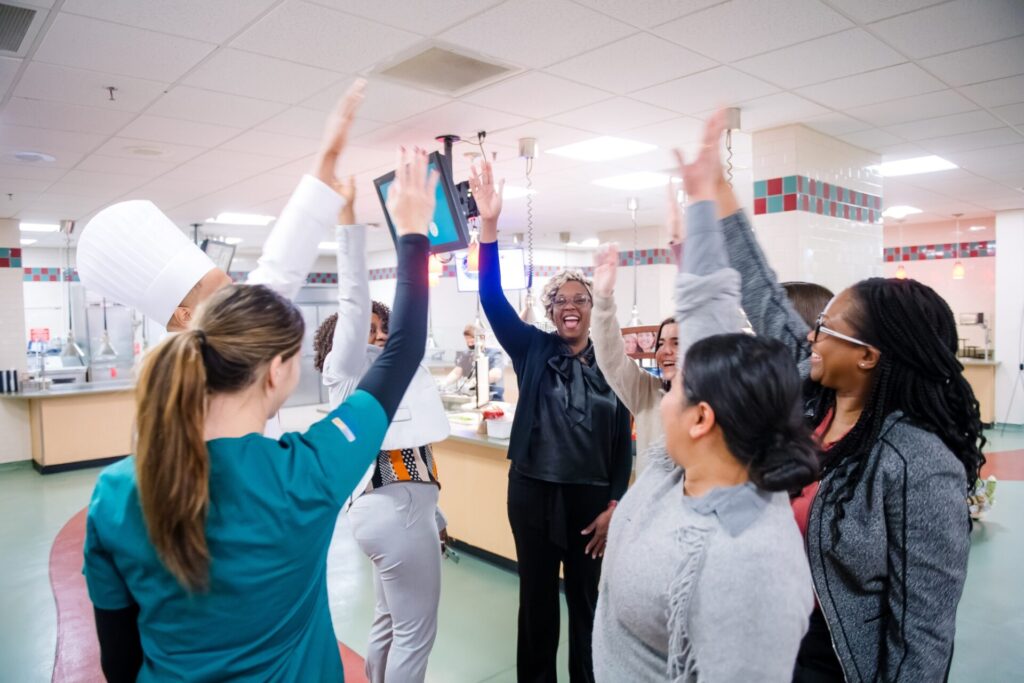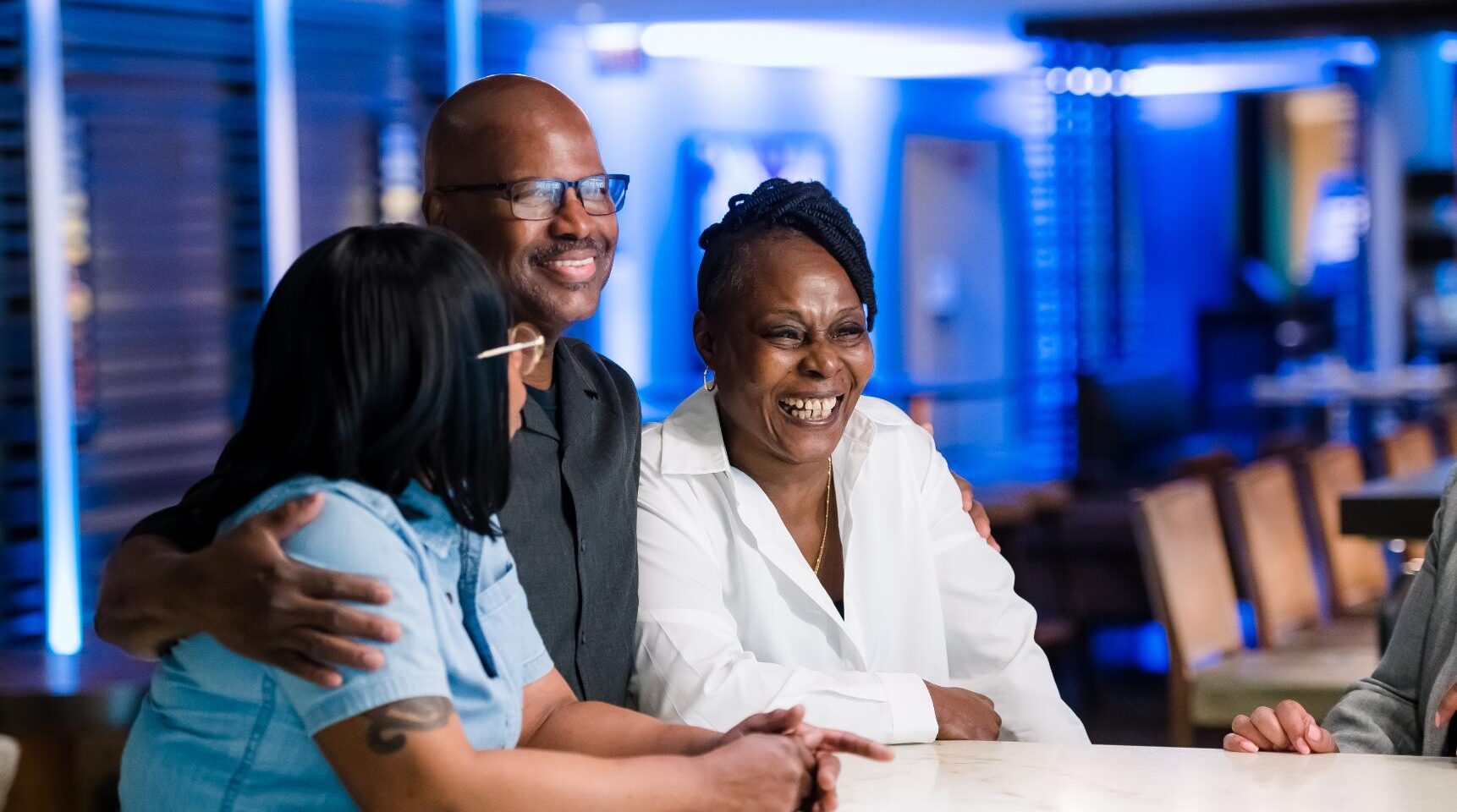Words to Describe Work Culture: What “We’re Like a Family” Really Means
This post is part of our “Words to Describe Work Culture” series. Also check out our ‘Work Hard, Play Hard‘ and ‘Bring Your Whole Self to Work‘ posts for more examples of using employee stories to push past generic statements and corporate jargon.
“We’re like a family.”
“It’s the people.”
“Working here feels like family.”
These are commonly used words to describe work culture across careers pages and company culture videos. But, they often leave more questions than answers. What does it really mean to “feel like a family” at work? If every family is different, what does that really say about your company’s culture?
When we hear storytellers describe their colleagues as “family,” we’re always left wanting more.
To turn these jargon statements into real insight into your culture, you need employee stories that show what “family” looks like in the workplace. These unique stories help your employer brand stand out and enable candidates to envision themselves at your company.
Let’s explore what “we’re like a family” really means and how to bring it to life in your culture content.
What “We’re Like a Family” Really Means
“We’re like a family” typically means that the workplace fosters a sense of closeness, support, and mutual care, similar to how family members look out for one another. But just as every family operates differently, every workplace has its own rhythm. What does that actually look like?
Below, we share four stories that go beyond the platitude and show different interpretations of what being “like a family” looks like in action.
Real Examples of Being Like a Family at Work
- We celebrate wins together.
In the video’s first clip, we hear about the time Eleven Peppers’ founders surprised the team with a trip to Disney World—including their families—to celebrate the company’s fifth anniversary. Multiple team members share how special this trip was and what it meant for their whole families to be included in the company milestone.
- We have a caring culture.
For some companies, being “like a family” means supporting each other through challenging times. In the second clip, Alex shares a personal story about experiencing two miscarriages while working at The Knot Worldwide. She was able to take the time she needed, no questions asked. She shares, “My team stepped up for me. To be able to do that and not feel like you’re falling behind in your career. It’s huge.”
- We want you to be yourself.
Rather than leaving your personality at the door, being “like a family” can mean that employees feel comfortable being their authentic selves. In the third clip, Emmanuel from Loews Hotels shares how his fun-loving personality is embraced by colleagues — like the time he was cheered on while doing a runway walk into a meeting!
- We provide benefits to support your hardest days.
Being like a family isn’t just about soft culture concepts. It can also include the tangible policies and benefits that can become a lifeline when you need them most. In the fourth and final clip, Walter from AARP shares how benefits such as caregiving leave and therapy enabled him to support his family through his wife’s battle with breast cancer.

Employees Stories Address Negative Connotations of “We’re Like a Family”
In the context of company culture, “We’re like a family” can often have negative connotations, like an expectation of unwavering loyalty or blurred boundaries between work and personal life.
This is just another reason why using employee stories to move beyond platitudes is so important. By giving real examples of what “family” means at your company, you help candidates gauge if it’s a level of familiarity that they are comfortable with.
The four stories shared above are all different examples of what “like a family” can mean at work. Some people may not want to take a vacation with their colleagues, and that’s OK!
Move Past Platitudes: Questions to Ask to Get Great Stories
Testimonials and platitudes don’t paint a clear picture for candidates, but real stories do. If an employee you are interviewing says, “We’re like a family,” follow up with questions that dig deeper:
- Can you think of a time your team stepped up when you needed support? Or, a time you jumped in to support another colleague?
- How do leaders here demonstrate that they care about the well-being of employees, beyond just their work?
- What’s something you feel comfortable doing here that you haven’t at other workplaces?
- How do you celebrate each other’s successes?

Use Visuals to Bring these Stories to Life
Better b-roll makes for better videos. When candidates can see the story you’re telling, it’s so much easier for them to envision themselves at your company. Take these personal stories to the next level by pairing them with personal photos from key moments in your storyteller’s lives. If you re-watch the video above, you’ll see many examples of real photos being used to support these compelling stories and how they add to the narrative.
Words to Describe Work Culture: Move Past the Buzzwords
Generic statements like “we’re like a family” can be said anywhere. When creating your next company culture video, aim to tell stories that only your employees can tell that set your culture apart.
Ready to capture stories that move beyond the buzzwords? Learn more about how we help companies create employee storytelling content that resonates with candidates.


Comments are closed.